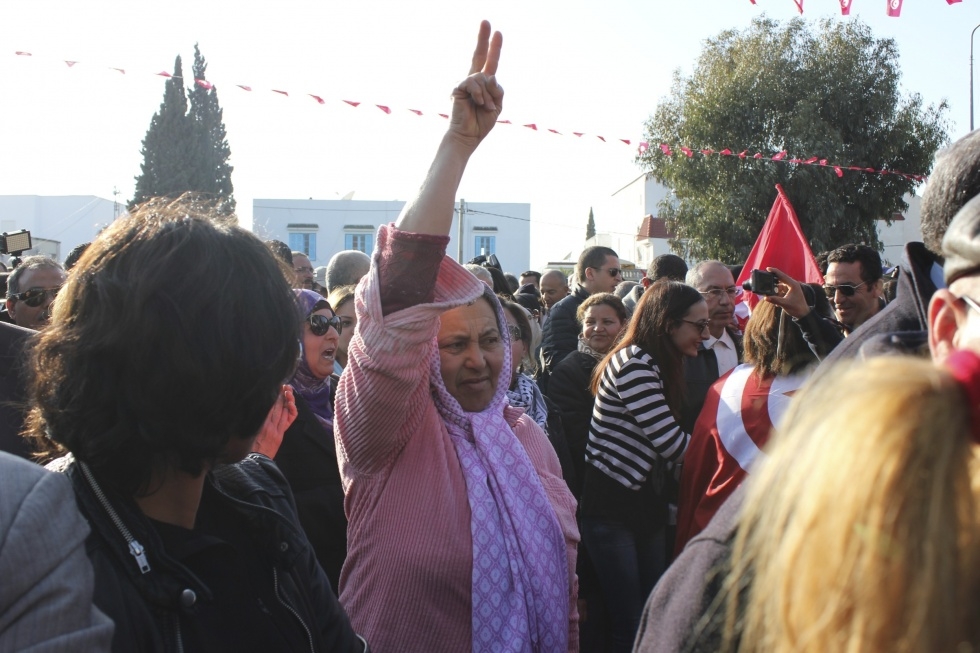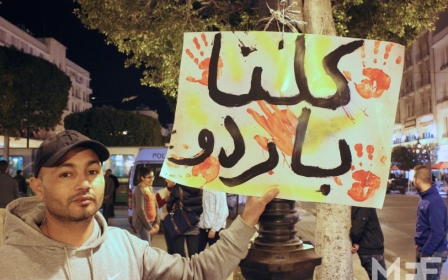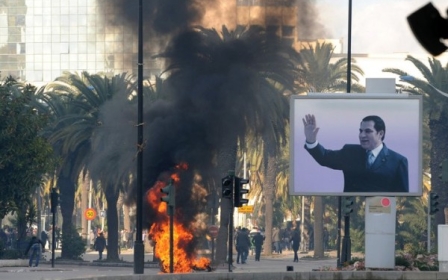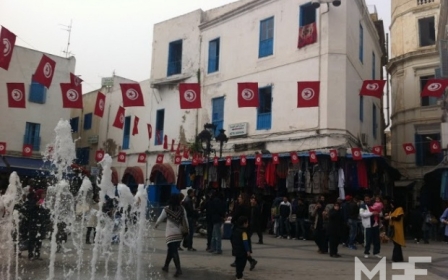Tunis resilient, but worried about economic consequences of attack

TUNIS - There was a surprising sense of resilience in Tunis last night after two gunmen entered the Bardo National Museum in the capital early Wednesday afternoon and sparked a hostage situation that resulted in the deaths of 17 tourists, two Tunisians and both attackers.
Tunisia has been waging a campaign against militants in the mountainous northwest of the country along the border with Algeria since the country’s 2011 revolution. And the prolonged conflict in neighbouring Libya has also heightened concerns about the security situation in Tunisia. Despite periodic operations against security personnel in the northwest, however, this was the first major militant attack to take place in the country’s capital.
Even with its unprecedented nature, many Tunisians who spoke to Middle East Eye (MEE) said they were not necessarily afraid of more attacks. Instead, they worried that the targeting of foreigners would drive away tourists and further weaken Tunisia’s already struggling economy.
Tunisia’s parliament, which is in the same compound as the museum, was on lockdown for about an hour before MPs and others inside were evacuated through a door on the opposite side of the complex from the museum. The atmosphere inside “was not calm, but it was not hysterical”, said Maria Glenna, a Norwegian researcher who was there at the time.
Just before the building was evacuated, all of the MPs who were inside gathered on the main staircase and sang the national anthem, vowing to fight against terrorism and continue Tunisia’s political transition, according to Glenna.
As security forces brought the hostage situation to an end at the museum, a crowd of around 300 people gathered outside the entrance of the fenced compound. One of the people in the crowd, 25-year-old Boulila Tarek Aziz, told MEE that he had come to congratulate the security forces. “I’m not afraid. In the beginning I was a little, but not now,” Aziz said. “It can happen in any country.”
Others in the crowd expressed a sense of shock. “Nobody expected to have this kind of attack after the democratic elections we had,” said 23-year-old Ashraf Ayadi, referring to parliamentary and presidential elections that took place last fall and resulted in the first democratic transition of power in the country’s history.
“It’s going to affect our economy a lot and especially our tourism sector,” he added.
Ayadi is an organiser with the World Social Forum, an annual gathering of civil society organisation focused on alternative economics and human rights scheduled to take place in Tunis from 24 to 28 March. Some of the 8,000 expected participants were already starting to send emails saying they would not attend because of the attack, according to Ayadi.
Tunisians have been hoping that a vibrant tourism industry will help revive the country’s economy, which has been stagnant since the 2011 revolution. Now Ayadi said he was worried both foreigners and Tunisians wouldn’t feel safe anymore.
Just two hours after the end of the hostage situation, however, the cafes lining Habib Bourguiba Avenue, the main pedestrian thoroughfare in downtown Tunis, was packed with customers.
Around 50 demonstrators from the World Social Forum organising committee also gathered on the steps of the Municipal Theatre on Habib Bourguiba Avenue. A crowd of close to a hundred people stood and watched as they chanted, “Tunisia is free. Out with terrorism” and sang the national anthem.
“We are against terrorism and all that is going on,” Racha Haffar, one of the demonstrators, told MEE.
Haffar was not happy with how Tunisian security forces were handling threats in the country. The attack “was just a message to say we are here, we can do whatever we want in the middle of the capital," she said. “I’m not afraid. I’m just worried about the economy and tourism.”
Following the World Social Forum rally, members of the moderate Islamist Ennahda party took to the stairs of the theatre to condemn the attacks. They chanted similar slogans and also sang the national anthem.
On the street after the Ennahda rally, Islem Kefi, 20, said that she would not be afraid to sit in cafes or spend time in public places because of the attack. However, she did see the attack as bad news for Tunisia’s future. “I love my country. I really do … but, with this, I don’t think I can live here anymore,” she said.
“We depend on tourists and after what happened today I doubt they will come here,” Kefi added.
The fear that tourism will decrease in the wake of the attack is probably well placed, according to Mathew Herbert, a researcher focusing on security in Tunisia. Following a 2002 al-Qaeda attack against an ancient Jewish synagogue on the Tunisian island of Djerba that also left 21 people dead, the number of tourists visiting the island decreased dramatically, Herbert pointed out. “It’s very likely that tourism will suffer in Tunisia this season and for several seasons after that, but eventually it will return,” Herbert told MEE.
It is too early to say if the group that carried out the attack today has any affiliations with an international militant organisation, such as the Islamic State or al-Qaeda, or if there are more attacks like this one in store, Herbert added.
However, the economic consequences are clear. “[President Beji Caid] Essebsi will likely have to spend the remainder of his term in office dealing with an economy that is weakened in the aftermath of this attack,” he said, referring to Tunisia’s president who has more than four years left in his term.
New MEE newsletter: Jerusalem Dispatch
Sign up to get the latest insights and analysis on Israel-Palestine, alongside Turkey Unpacked and other MEE newsletters
Middle East Eye delivers independent and unrivalled coverage and analysis of the Middle East, North Africa and beyond. To learn more about republishing this content and the associated fees, please fill out this form. More about MEE can be found here.




